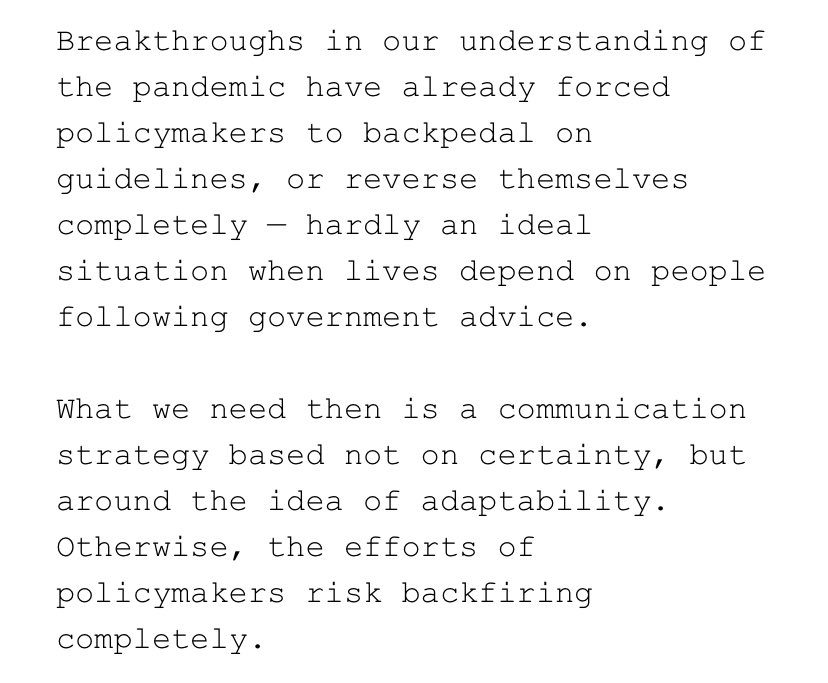Claiming to take decisions based on science can be just as wrong as not trusting science. Politicians need to combine science advice & political choices & take responsibility for it. And scientists need to communicate complexity & uncertainty to the public https://historyofknowledge.net/2020/05/13/public-and-scientific-uncertainty/
Bruno Latour made this point in Science in 1998, noting the transition from "science" (facts) to "research", which is messy, complex, and involves society https://science.sciencemag.org/content/280/5361/208.figures-only HT @laetitialenel
"No one expects to disentangle for good a core of scientific facts from the social context of ideologies, tastes, and values ... When scientists add their findings to the mix, they do not put an end to politics; they add new ingredients to the collective process."
See also Gloria Origgi, What is an expert, 2015 http://www.humanamente.eu/index.php/HM/article/view/85/77
More advice about handling scientific advice: communicate and apply adaptability. Which also means favouring options that keep other options open, not options that trigger path dependence https://www.politico.eu/article/coronavirus-scientists-keep-it-simple/
"Models should be used to highlight the known unknowns that critically affect conclusions. These then become urgent to resolve, e.g. by collecting data. The value of using rival teams is that it flushes out these known unknowns, while discouraging exaggerated claims to knowledge"
"The problem of modelling -- Public policy and the coronavirus" https://www.the-tls.co.uk/articles/problem-modelling-public-policy-coronavirus-paul-collier

 Read on Twitter
Read on Twitter



